The Mulligan Street Minutes
Spring 2021
Building Strength:
Diversity, Equity & Inclusion at FPM
In diversity there is beauty, and there is strength.
—Maya Angelou
Last year when the Black Lives Matter movement began, this national effort to address the issues of racism and inequity in our country gave us hope, because it was personal for us. Although statistics had long highlighted how families of color were disproportionately impacted by housing insecurity across the US, we’d been witnessing it up close in our own community for the last twelve years. In the 2019 US Census, 9% of the MA population identified as African American or persons of color and 12% as Hispanic or Latino. Yet in 2020, 49% of our FPM families facing homelessness identified as persons of color and 31% identified as Hispanic or Latino.
While we were proud of our work to stabilize families facing homelessness, we also knew there was more to do to ensure they felt safe and supported. Providing housing and support was the beginning, but ensuring our families truly assimilate and know they are valued is another.
So, we began by meeting with our families.
In 2019, we established the Family Advisory Council to empower families by inviting them to play an essential role in the strategic planning and implementation of goals at FPM. Council members include 6-8 parents representing different FPM programs who meet monthly with the Executive Director to review the emerging needs and diverse challenges faced by our families. By gaining essential input from those with lived experience, we have enhanced our programming and initiatives while giving our families a voice in making real change that will impact others.
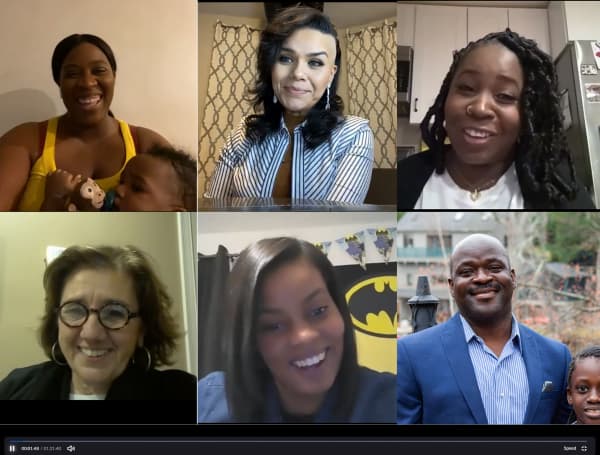
During the height of the BLM protests, we turned to our Family Advisory Council to learn more about the impact of racism and inequity on our families. Through discussion, our families educated us on the struggles they face as parents raising children in communities that lack diversity and with it, an authentic acceptance of others.
One of our moms shared a story about a family friend who was driving her son one day. When the friend approached a family member, she asked him to hide in the back seat because she was afraid they’d say something hurtful to him as a young man of color. “I had to explain to my beautiful son that some people were just ignorant. How do you tell your child that some people will judge them by the color of their skin? I want my sons to be strong and proud of who they are, not angry and fearful.”
Another mom talked about her own experience as a child in a local METCO program and how she felt the first time someone called her by the “n” word. “I was only 8 years old and I didn’t understand. Nothing prepares you for that. I’m a mom now and I want my children to be prepared for what will lie ahead. In reflection, I think about how it was explained to me and how I will now explain it to my son.”
As we listened to their personal stories, we began to understand the tremendous need to provide thoughtful support for our parents and children while also taking a broader view to address systemic issues in the community. By forming alliances with other initiatives based on empowerment, we will provide the resources our parents need to feel assured in their ability to support their children in becoming strong, confident, and successful adults. We’ve also formalized our objective through the development of a Diversity, Equity, and Inclusion (DEI) committee. Composed of staff, board, and families with lived experience, our committee will focus on each aspect of our organization with a lens toward equity in inclusiveness and accessibility. We will also turn this lens on our partnerships and outreach in the broader community, ensuring that our actions always advance our communities’ movement toward a future where diversity is valued, equity is practiced, and access is ensured.
Our New Initiatives
Our commitment to incorporating DEI principles and priorities across our organization is already resulting in some exciting collaborations with community partners. Our hope is that these new offerings will empower both parents and children by honoring their lived experiences and creating space for them to voice their challenges and inspire change.
I Am King
The I Am King mentorship was first recommended by one of our parents who described the experience as instrumental in helping her son self-identify as a young black male. “I had never thought about how he perceives himself because we never really had the conversation about self-awareness. The program gave him the opportunity to have the discussion and helped him identify himself with the world around him.” Facilitated by the He Is Me Institute, the goal of the program is to inspire more men of color to work in the education field, increasing diversity in role models for children. The program pairs male college students of color with young middle school boys of color to provide mentoring in three curriculum areas: Social Emotional Learning, Racial Identity, and Literacy.
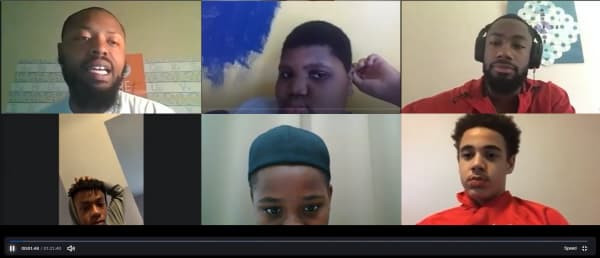
While most of our boys were hesitant at first, after joining they quickly embraced the program, and especially the mentors themselves. One participant described his experience: “When my mom said I had to get up early on a Saturday morning I really wasn’t thrilled, but it ended up being a cool experience. I really liked the mentor. He was so easy to talk to and we talked about so many different things.”
One of our other moms shared her response to the program. “Jayden is enthusiastic and can't wait for Saturday. He is one of the younger mentees in the group, but he is participating and learning. I think this will not only help him with understanding who he is but alleviate some of his social anxiety. Thank you for this opportunity.”
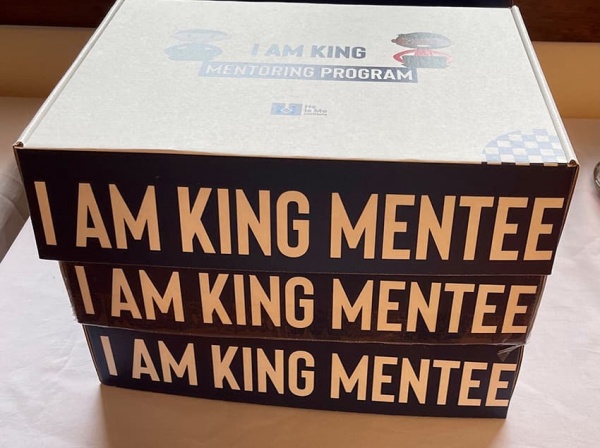
Our first cohort of this program began in March 2021 with seven families from FPM programs and met weekly for six weeks. Our goal for future I Am King programs is to partner with other local agencies, including the METCO Program, and offer this program a minimum of annually. We are eager to continue providing a safe place for our middle school boys to speak in confidence and connect with mentors and peers of color knowing they will become stronger, more confident adults in the future.
Parent Empowerment Group: Coming in Fall 2021!
Offered to our families in collaboration with SPARK Kindness, this five-session discussion group for parents experiencing homelessness will focus on recognizing and strengthening well-being and resilience skills. Through conversation and reflection, participants will gain tools and concrete strategies for personal development, parenting, and navigating the ongoing impacts and structural inequities of racism and homelessness. Specific topics covered include connection and healthy relationships, empathy, self-compassion, self-regulation, stress management, and hope.
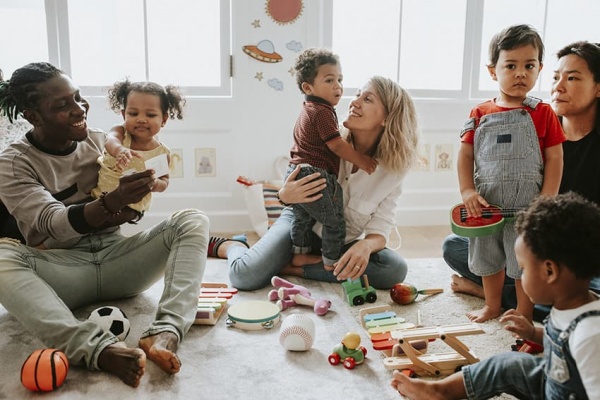
By partnering with SPARK, we believe these workshops will provide a venue for families to share their challenges, discuss solutions, and ultimately give them the confidence they need to continue being strong, impactful parents. This group will be facilitated by Stephanie Di Dio, MSW, Shelter Program Coordinator, and Laura McCarthy, MA, Director of Small Group Programming, SPARK Kindness.
We are currently in conversation with other community organizations to bring empowerment programming to adolescent girls served by FPM. Stay tuned for more details on this over the coming months!
Lessons on Inclusion
We’ve shared a lot about our reimagined, COVID-restricted events over the past year, and what we’ve learned about how to make our future events even more successful. But it was our walkathon last month that offered us one of the most powerful lessons of this strange year. Since we still couldn’t hold a large, in-person gathering, we created a decentralized format instead, encouraging people to “pick your own path” in their home communities, and to participate with their friends and loved ones at any point over the course of the walk weekend.

The response was astonishing. We had almost as many walkers as ever, and raised even more money than a conventional walkathon would have likely brought in. But the real gold was in the feedback we received about this new format. Although we had planned it as a fallback for our typical event, for many participants this new format enabled them to engage in our walkathon for the very first time. For some, getting to select a walk route that was fully accessible for their level of skill or mobility was the key. For others, being able to choose the day or time that met their familial or religious needs made it possible to join in this year. And for still others, not having to attend a crowded, noisy, public event prompted them to participate. In all the boisterousness and energy of our standard event, we had unintentionally overlooked a quiet crowd of supporters, dedicated to our mission but unable to join in for a host of very important reasons.
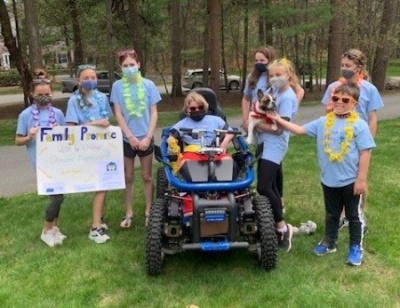
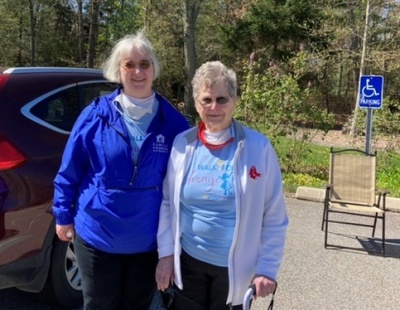
We’ve learned similar lessons in terms of volunteerism and community engagement. By shifting to a remote format for some forms of volunteering (like our tutoring program), and by making most of our volunteer-based meetings online, new faces have emerged. People who were unable (or not interested in) engaging in person, now had an opportunity to be a part of our hands-on community in a way that worked for their schedules, their abilities, and their preferred ways of interacting.
As we focus a DEI lens on our work and workplace even more intently this year, these important revelations about what inclusion should look like at Family Promise Metrowest will be carried forward and upheld. We will be certain to develop events and opportunities that welcome all supporters that have gifts to share. What we know, and have always known, is that addressing an issue as complicated as family homelessness truly takes the work of an entire community. We want to be sure that our entire community can be there for our families, and for each other.